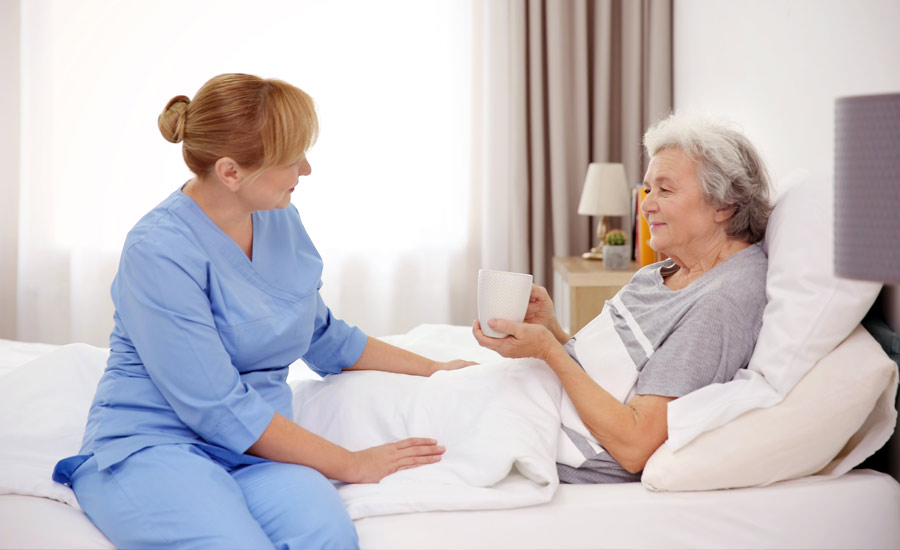When families start worrying about an aging loved one, the conversation often jumps straight to nursing homes. It’s like there’s this invisible line where independence ends and institutional care begins, with nothing in between. But here’s what most people don’t realize – there are actually tons of ways to help someone stay safe and comfortable without packing up their entire life and moving them somewhere completely new.
The Big Decision Doesn’t Have to Be So Black and White
Most families face this moment where they notice their mom forgetting to take her medication or their dad struggling to keep up with housework. The natural response is panic, followed by immediate thoughts about “facilities” and “what’s the best nursing home nearby.” But aging doesn’t happen overnight, and neither should the solutions.
The reality is that most older adults go through a gradual transition where they need more help with certain things while staying perfectly capable in other areas. Maybe someone can still cook their favorite meals but shouldn’t be climbing ladders to change lightbulbs. Or perhaps they’re great at managing their finances but need reminders about appointments. These situations don’t require giving up everything familiar – they just need the right kind of support.
What Home Care Actually Looks Like Today
When people hear “home care,” they sometimes picture old-fashioned scenarios with live-in nurses or major disruptions to daily life. Modern home care is completely different. Professional caregivers can provide exactly the level of help someone needs, whether that’s a few hours a week or more comprehensive daily support.
For families dealing with these decisions, services like in-home care in Pennsylvania offer flexible arrangements that can adapt as needs change over time. The beauty of this approach is that it allows people to maintain their routines, keep their possessions around them, and stay connected to their community while getting professional help with the things that have become challenging.
Home care can cover everything from medication reminders and light housekeeping to more complex medical needs. Some people need help with personal care tasks, while others just want someone around for safety and companionship. The key is that it’s all customized to what each person actually needs rather than a one-size-fits-all institutional approach.
The Hidden Benefits of Staying Put
There’s something powerful about being in your own space that goes way beyond simple comfort. When someone moves to a nursing home, they lose control over their environment in ways that can be really difficult psychologically. At home, they can still choose when to eat, what to watch on TV, and how to arrange their furniture. These might seem like small things, but they add up to a sense of autonomy that’s hard to replicate elsewhere.
Staying at home also means staying connected to the neighborhood, the local grocery store, longtime neighbors, and all those little relationships that make up a community. These connections often disappear when someone moves to institutional care, and that social isolation can have serious effects on both mental and physical health.
There’s also the practical side – home care often costs significantly less than nursing home placement, especially when someone doesn’t need 24/7 medical supervision. Families can often get years of quality support at home for the price of months in a facility.
When Nursing Homes Make Sense
This isn’t about avoiding nursing homes at all costs – they absolutely have their place in the healthcare system. Some medical conditions require round-the-clock skilled nursing that just can’t be provided at home safely or affordably. Advanced dementia, complex medical needs requiring frequent monitoring, or situations where family caregivers are completely overwhelmed might genuinely require institutional care.
The important thing is making sure the decision is based on actual medical necessity rather than assumptions about what aging “should” look like. Many families rush into nursing home placement because they don’t know what other options exist or because they’re scared about safety at home.
Figuring Out What Actually Works
No two families face exactly the same situation, and there’s no magic formula for making these decisions. What matters most is sitting down and talking honestly about what’s getting harder and what really needs to change. Sometimes grandma has zero interest in moving anywhere, and if she’s not in immediate danger, that preference deserves serious consideration.
Getting a professional opinion can clear up a lot of confusion. Doctors and social workers who work with older adults can look at someone’s actual situation and give families a realistic picture of what kind of help might be needed. Some communities have people whose entire job is connecting families with local resources and explaining what’s available. These conversations often reveal options that families never knew existed.
Don’t Wait Until Everything Falls Apart
Here’s the thing about waiting until there’s an emergency to make these decisions – it rarely goes well. When someone ends up in the hospital after a fall or a medical crisis, families often get pressured to make quick choices about care arrangements. That’s when people end up in nursing homes not because it was the best option, but because it was the only option available on short notice.
Smart families start looking into this stuff before they absolutely have to. They research what home care companies operate in their area, figure out what insurance might cover, and most importantly, they talk to their aging relatives about what they want. These conversations can be awkward at first, but they’re so much better than trying to guess what someone would prefer during a medical crisis.
The bottom line is that nursing homes serve an important purpose, but they’re not the automatic next step for every older adult who needs some extra help. Home care offers a middle ground that can provide safety, support, and professional assistance while preserving the independence and dignity that come with staying in familiar surroundings.


